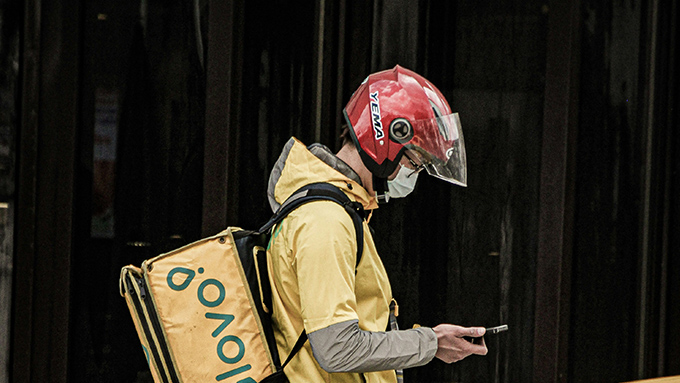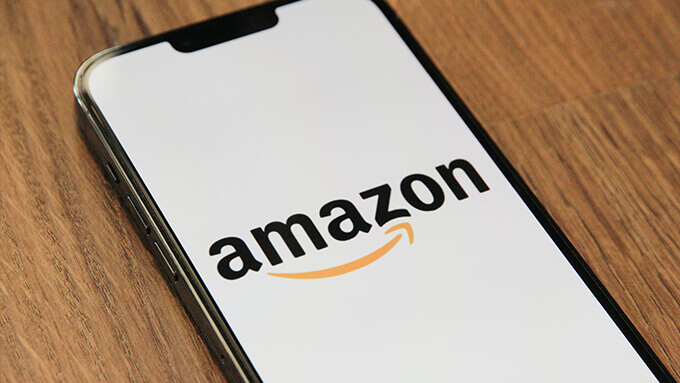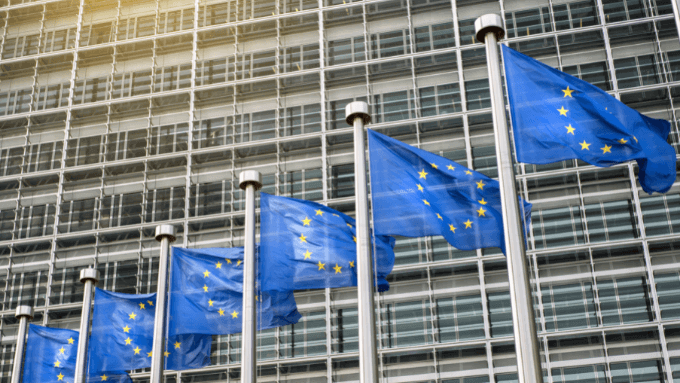Hub and Spoke Cartels
Introduction
Hub and spoke cartel is not a frequently encountered competition law violation due to its complex structure. Yet nowadays, it is one of the most pressing topics on the agenda of the Turkish Competition Board (“Board”). As it has been widely publicized throughout the media, the Board has recently announced its final decision[1] with regard to the investigation conducted to examine the pricing behavior of the market chains operating in the retail trade of food and cleaning supplies during the COVID-19 pandemic and the manufacturer and wholesaler undertakings which are their suppliers. The Board has imposed fines on the top five largest retailers in Turkey, in addition to a food supplier. The infringement determined by the Board in this case is that the enterprises were acting as a “hub and spoke cartel” for the purpose of determining the retail sales prices of many products. In this article, after laying out the criteria that define a hub and spoke cartel, hub and spoke examples under Turkish competition law will be examined through the Board’s two significant decisions.
Definition and Legal Basis
A hub and spoke cartel can be defined as the indirect exchange of information between two independent undertakings which are horizontal competitors on the supplier or retailer level (“spokes”), through another undertaking operating at a different level of the production or distribution chain (“hub”). The hub facilitates the coordination of competition between the spokes without direct contacts between the spokes.[2] Despite the lack of a direct exchange of information among the horizontal competitors, this indirect exchange of information can be considered to have the same negative impacts on the market as a horizontal hardcore cartel.

Hub and spoke cartels represent a relatively new type of violation within the scope of Turkish competition law.[3] While hub and spoke is not explicitly defined or regulated as a separate type of violation within the scope of the Law No. 4054 on the Protection of Competition (“Law No. 4054”) or the Guidelines on Vertical Agreements, the Guidelines on Horizontal Cooperation Agreements highlights that the exchange of information among undertakings can be realized in various manners, and that indirect exchange of information may also constitute a violation within the meaning of Law No. 4054.[4]
Taking into consideration that the information exchanged between suppliers and distributors may also occur for legitimate business purposes, it is not possible to conclude that each exchange of information on a vertical level constitutes a violation and therefore, enforcement agencies should scrutinize whether the conditions for a hub and spoke cartel which are set forth by jurisprudence have been fulfilled in every individual case.
Types of Hub and Spoke Arrangements
Hub and spoke arrangements may appear in three main ways:[5]
- Between Retailers, Supplier Serving as a Hub
In this type of hub and spoke arrangement, it is possible for two competitor undertakings to exchange information indirectly through a supplier serving as a hub and operating in the upstream market.
- Between Suppliers, Retailer Serving as a Hub
Hub and spoke arrangements can also occur in case the suppliers exchange information by means of a retailer serving as a hub and operating in the downstream market. This usually occurs when there are only a small number of players in the upstream market or downstream market, as the existence of only a few players increases the coordination between the undertakings during the information exchange process.
- Between Retailers, Third Party Serving as a Hub
Under this scenario, the hub is a third party, completely independent from the market in which competitor undertakings operate. In other words, the hub is not an actor operating in the upstream or the downstream market of the competitor undertakings. For example, the hub may be an independent auditing company or an association. In this respect, despite the fact that the third-party hub does not have any activity in the relevant market, it may still be sanctioned due to its assistance to the indirect exchange of information.
Main Criteria of Hub and Spoke Arrangements
Unlike other competition law violations, hub and spoke arrangements occur at the intersection of horizontal and vertical competition law violations.[6] In this respect, hub and spoke has a more complex structure than other competition law violations and requires in-depth analysis. In order to set forth a framework for enforcement agencies, it is important to define the criteria to be fulfilled while deciding on the existence of a violation. In the UK, criteria have been established through landmark decisions[7] and they have been adopted by other competition authorities as well. These criteria, which include a combination of objective and subjective elements, are as follows:[8]
Under the scenario that undertaking A and undertaking C are retailers (the spokes) and undertaking B is a supplier (the hub):
- A passes strategic information to B.
The first objective criterion is met in case A passes its competitively sensitive information to B. The term “competitively sensitive information” in this context refers to the situation where the uncertainty in the market decreases in case A’s competitors become aware of the information provided by A. For instance, information related to the future price policy of the undertakings may be considered as competitively sensitive information.[9]
- B passes A’s competitively sensitive information to competitor C.
The second objective criterion is fulfilled when A discloses competitively sensitive information to the hub B and in return, B passes this information on to C. Subsequently, C uses this information in determining its own future pricing strategy on the market.
- A knows that the information transmitted to B will be shared with its competitors.
A must communicate its competitively sensitive information to B, specifically with the intention or foresight that it will be passed on to C, which is a horizontal competitor to A. It should be noted that there is no common view in the case law as to whether A’s foresight that the information can be passed on to C by B is sufficient or whether A’s intention to pass the information to C by means of B needs to be taken as a basis in order to prove the existence of the subjective element.
Moreover, it is also noteworthy that reciprocal exchange of information is more likely to indicate the existence of a hub and spoke cartel. This situation occurs when A passes information to B while at the same time C provides information to B. In this case, it is more likely that A and C become aware of each other’s strategies. In this respect, proving the foresight or intention criterion becomes easier. In cases where the information flow is one-sided, it becomes difficult to prove that information was intentionally exchanged.
Another element to be taken into consideration within the scope of this subjective element is the timing of the act and the realization of the exchange of information due to the fact that disclosing commercially sensitive information is legitimate in the context of negotiating an agreement and fixing its terms.[10]
In addition, while evaluating this subjective element, it is also crucial to evaluate whether there is an economic justification for exchange of information as an economic justification may prevent the exchange of information to be considered as hub and spoke cartel.
- C is aware that the information is obtained from A and C uses this information in determining its own behavior on the market.
In addition to the aforementioned criteria, C must know why and under which circumstances[11] B obtained the information from A. Otherwise, it can be argued that C did not have the purpose to impede competition. Furthermore, C must understand the reason why the information is being transferred and C must determine its own future behavior and pricing on the market by trusting to the accuracy of this information.[12]
The Board’s Relevant Decisions
The Board’s main decisions where allegations with regard to hub and spoke have been evaluated are the LSIAD[13] and Aral Oyun[14] decisions.
The LSIAD Decision
In this decision, the Board evaluated the allegations that Goodyear, Pirelli and Brisa which are undertakings operating in the tire sector, communicated their sales volume and future price increases. Subsequently, the Board found that the relevant undertakings exchanged information through mutual dealers. In this respect, the Board stated that the mutual dealer served as a hub and therefore, the information exchanged among the competitors through the hub consisted of future pricing strategies.
All in all, the Board decided that the dealers did not lead to a competition law violation. Despite the fact that the manufacturer competitors provided information related to their future pricing strategies and that the dealers determined their own prices accordingly, the Board decided that the reason why the dealers communicated this information to the competitor manufacturers was to use this information as a negotiation factor and to ensure buying tires for more affordable prices. For this reason, the Board decided not to launch a full-fledged investigation against the relevant undertakings.
The Aral Oyun Decision
In this decision, the Board evaluated allegations concerning price fixing agreements, hub and spoke arrangements and resale price maintenance in the computer and game console market and consumer electronics market.
The Board determined that the undertakings active in the computer and game console market complained to the dealer on the grounds that the prices of their competitors were low and they asked the dealer to intervene in increasing the competitors’ prices. Accordingly, the Board evaluated whether the third party whose price was manipulated by the supplier knew that the price increase request came from its competitors on the market or whether it was possible for the third party to have foreseen this situation. Other than one undertaking, the Board stated that this condition was not fulfilled. Based on these facts, the Board decided that there was no indirect communication between the competitor retailers and therefore the communication on the market did not reach a level of a horizontal agreement between competitors.
As for the consumer electronics market, the Board determined that the retailers (Teknosa and MS) complained to the supplier (LG) that their competitors’ prices had decreased and they asked the dealer to intervene in the prices. Subsequently, the supplier intervened in the competitors’ prices. Thus, the Board stated that the main purpose of the relevant retailers and the supplier was to determine the prices of supplier products outside of the market and to limit price competition in the consumer electronics market. Accordingly, the Board concluded that this constituted a vertical relationship and therefore the aforementioned acts concerned resale price maintenance. The Board also decided that there was no horizontal agreement as there was no evidence indicating a direct or indirect communication among retailers.
Conclusion
Hub and spoke cartels have been a subject of many discussions recently, as they represent a type of competition law violation which is not explicitly defined by legislation and which is not commonly evaluated in the Board’s decisions. The elements set forth by the British authorities constitute the principal framework for evaluating the existence of hub and spoke violations. Indeed, a combination of objective and subjective elements should be evaluated by the authorities, while also bearing in mind the conditions pertaining to the case at hand. All in all, while the LSIAD and Aral Oyun decisions as well as the market chain investigation indicate the Board’s basic approach to handling hub and spoke cartels, it is certain that the Board’s approach in its future precedents will further shed light on all the aspects of these violations.
[1]The announcement with regard to the Board’s decision dated 28.10.2021 and numbered 21-53/747-360, https://www.rekabet.gov.tr/Dosya/geneldosya/zincirmarketler_nihaikararduyurusu-pdf (Last accessed: 16.11.2021).
[2]OECD: Roundtable on Hub and Spoke Arrangements, Background Note (2019), https://one.oecd.org/document/DAF/COMP(2019)14/en/pdf (Last accessed: 16.11.2021).
[3]Aslan, Yılmaz: Rekabet Hukuku Teori ve Uygulama, 6th edition, Ekin (2021), p. 437.
[4]Guidelines on Horizontal Cooperation Agreements published by the Turkish Competition Authority (2013), para. 40, https://www.rekabet.gov.tr/Dosya/kilavuzlar/yatay-isbirligi-anlasmalari-hakkinda-kilavuz1.pdf (Last accessed: 16.11.2021).
[5]Aslan, p.437, 438.
[6]Klein, Benjamin: Antitrust Analysis of Hub-and-Spoke Conspiracies (2017), p. 3, https://papers.ssrn.com/sol3/papers.cfm?abstract_id=2909341 (Last accessed: 17.11.2021).
[7]Competition Appeal Tribunal’s Argos Limited and Littlewoods Limited v. Office of Fair Trading, 2004 CAT 24 decision numbered 1014 and 1015/1/1/03, https://www.catribunal.org.uk/sites/default/files/Jdg1014Argos141204.pdf (Last accessed: 17.11.2021) and OFT’s Price-fixing of Replica Football Kit decision dated 01.08.2003 and numbered CA98/06/2003 , https://assets.publishing.service.gov.uk/media/555de4c5e5274a74ca00014b/replicakits.pdf (Last accessed: 18.11.2021).
[8]OECD: Roundtable on Hub and Spoke Arrangements, Background Note (2019), p. 22, 23, https://one.oecd.org/document/DAF/COMP(2019)14/en/pdf (Last accessed: 18.11.2021).
[9]Court of Appeal’s Argos Limited and Littlewoods Limited v. Office of Fair Trading and JJB Sports Plc v. Office of Fair Trading decision numbered 2005/1071, 1074 and 1623, 2006 EWCA Civ 1318, para. 126, https://www.catribunal.org.uk/sites/default/files/Jdg_CoA_1014Argos_Little_JJB191006.pdf (Last accessed: 17.11.2021).
[10]Odudu, Okeoghene: Indirect Information Exchange: The Constituent Elements of Hub and Spoke Collusion, European Competition Journal, No. 7 (2) (2011), p. 234.
[11]Court of Appeal’s Argos Limited and Littlewoods Limited v. Office of Fair Trading and JJB Sports Plc v. Office of Fair Trading decision numbered 2005/1071, 1074 and 1623, 2006 EWCA Civ 1318, para. 141, https://www.catribunal.org.uk/sites/default/files/Jdg_CoA_1014Argos_Little_JJB191006.pdf (Last accessed: 17.11.2021).
[12]Competition Appeal Tribunal’s Tesco Stores Limited, Tesco Holdings Limited, Tesco Stores Plc v. Office of Fair Trading, 2012 CAT 31 decision numbered 1188/1/1/11, para. 260, https://www.catribunal.org.uk/sites/default/files/1188_Tesco_Judgment_CAT_31_201212.pdf (Last accessed: 17.11.2021).
[13]The Board’s LSIAD decision dated 16.12.2015 and numbered 15-44/731-266, https://www.rekabet.gov.tr/Karar?kararId=bbc4b8ac-90fd-473d-ab4d-1d0052e72a11 (Last accessed: 16.11.2021).
[14]The Board’s Aral Oyun decision dated 07.11.2016 and numbered 16-37/628-279, https://www.rekabet.gov.tr/Karar?kararId=2386aaf0-f39a-4ac0-9e6c-cb5a3fcf0789 (Last accessed: 17.11.2021).
All rights of this article are reserved. This article may not be used, reproduced, copied, published, distributed, or otherwise disseminated without quotation or Erdem & Erdem Law Firm's written consent. Any content created without citing the resource or Erdem & Erdem Law Firm’s written consent is regularly tracked, and legal action will be taken in case of violation.
Other Contents

Mergers and acquisitions are among the types of transactions that are subject to intensive scrutiny by competition authorities. As a rule, competition authorities only subject transactions that exceed certain turnover thresholds and result in a change of control to merger…

The U.S. District Court for the District of Columbia (“Court”) issued its memorandum opinion (Memorandum Opinion) on November 18, 2025, in the antitrust case (“Case”) between the Federal Trade Commission (“FTC”) and Meta Platforms Inc. (“Meta”). The FTC alleges that Meta monopolized the market…

No-poach agreements, which have become one of the most prominent concepts in global competition law in recent years, are defined in the Glossary of Competition Terms as “agreements, whether direct or indirect, whereby one undertaking agrees not to make job offers to, or hire, the employees of another...

The Competition Board (“Board”) has broad powers to request information from undertakings. The legal basis for this authority is provided by Article 14 of Law No. 4054 on the Protection of Competition (“Law No. 4054”). Under this provision, the Board may request any information it deems necessary from public...

Competition authorities around the world have increasingly focused on labor market infringements under competition law, issuing new regulations and guidance recently. Notable examples include the U.S. Department of Justice and Federal Trade Commission’s joint guidance, the Japanese Fair Trade Commission’s...

Chapter 8 of the General Data Protection Regulation (“GDPR”) sets out the legal remedies available to data subjects in the event of a breach of their rights under the GDPR. Accordingly, each data subject has a right to lodge a complaint with the supervisory authority of the Member State in which they reside, work...

Mergers and acquisitions play a critical role in shaping the competitive structure of the market. Although such transactions can lead to positive outcomes such as the provision of products and services at lower prices, the development of new products and technologies, and improvements in quality, they may also...

Technology and the opportunities it brings undoubtedly play a key role in strengthening the competitiveness of market players. In this context, pricing algorithms that enable undertakings to monitor publicly available prices and optimize their own pricing strategies have become widely used, especially by digital platforms...

The Regulation on Fines to Apply in Cases of Agreements, Concerted Practices and Decisions Restricting Competition, and Abuse of Dominant Position (“Former Regulation on Fines”), which entered into force upon its publication in the Official Gazette dated February 15, 2009 and numbered 27142, was...

In the past years, the Turkish Competition Board (“Board”) has closely monitored the activities of undertakings operating in the retail sector. As a result of the Board’s record of administrative fines, horizontal type of violations in the retail sector have been highly publicized. Vertical violations such as resale price...

In recent years, numerous automobile manufacturers have announced their goals to reduce carbon emissions, with many brands setting net-zero carbon targets spanning from production processes to the lifecycle of their vehicles. While ongoing debates persist regarding the significantly higher carbon footprint of...

Under Article 15 of Law No. 4054 on the Protection of Competition (“Law No. 4054”), the Competition Board (“Board”) may conduct on-site inspections at the undertakings’ premises when it deems necessary in fulfilling the duties assigned to it. During the on-site inspection, the Board is authorized to examine all...

Agreements and information exchanges between undertakings in labor markets have recently been examined in various preliminary investigations and investigations initiated by the Turkish Competition Authority (“Authority”). Following the investigations in which some undertakings were subject to...

The Turkish Competition Board’s (Board) decision regarding the acquisition of the international road transport business line of Ekol Lojistik AŞ (Ekol) by DFDS A/S (DFDS) has been one of the most prominent transactions on the competition law agenda recently...

The Competition Board (“Board”) has broad powers to request information from undertakings. The Board’s authority to request information arises from Article 14 of the Law No. 4054 on the Protection of Competition (“Law No. 4054”). Under the relevant provision, the Board may request any information it deems...

Doğuş Otomotiv Servis ve Ticaret A.Ş. (Doğuş) applied to the Turkish Competition Authority for an exemption for the practice of recommending basic wages to be applied to sales and after-sales service employees of its authorized dealers and distributors...

Access to Instagram was blocked ex officio by the Information and Communication Technologies Authority (ICTA) as of 2.08.2024. Under Article 8 of Law No. 5651 on the Regulation of Publications on the Internet and Combating Crimes Committed Through These Publications, ICTA can issue an ex officio access...

It is well known that agreements between employer undertakings with regards to their employees, such as wage-fixing and non-poaching agreements, along with competitively sensitive information exchanges have been under the scrutiny of competition authorities all over the world, including the Turkish Competition...

Automotive is one of the sectors in which the world’s most significant investments are made. The Competition Board (“Board”) has been closely interested in the automotive sector over the years and has conducted various examinations and studies in this field...

Competition authorities around the world continue unabated to investigate competition concerns arising from data collection and processing activities of digital platforms and impose severe sanctions as a result...





The startup ecosystem in Turkey has experienced notable growth in recent years. In the last quarter of 2023, 81 startups secured a combined investment of around 60 million dollars. While the number of investments remained consistent when comparing the third quarter periods of 2022-2023, there was a decrease...

Hub and Spoke cartel is a type of violation that is not clearly defined and regulated under Law No. 4054 on the Protection of Competition (“Law No. 4054”). Decisional practices of foreign competition authorities, particularly the UK Competition and Markets Authority’s decisions (“CMA”), are instructive concerning...

The Competition Board ("Board") made an addition to its line of decisions on resale price maintenance with its decision on Sunny Elektronik Sanayi ve Ticaret A.Ş. ("Sunny") . In its decision, the Board thoroughly examined the allegations regarding Sunny's involvement in maintaining resale prices and restricting...

It is observed that the Competition Authority (“Authority”) has recently scrutinized various industries such as fast-moving consumer goods, labor market, pharmaceuticals, and cement. When the reasoned decisions of the Competition Board (“Board”) published in October are examined, it can be seen that the...

Jules Verne says, “Everything on earth has a limited lifespan, nothing that will exist forever can be created by human hands”. Perhaps change is the only constant concept in all our lives. Despite two major world wars and countless periods of crisis, humanity has been undergoing a great change and...

At the meeting of the Fédération Internationale de Football Association (“FIFA”) held on 16 December 2022, the FIFA Council approved the FIFA Football Agents Regulations (“FFAR”). In the FFAR, various amendments have been made, such as the introduction of a maximum service fee limit that football agents are...

Resale Price Maintenance (RPM) is still considered a hardcore restriction under the recently revised Vertical Block Exemption Regulation (VBER), which means that it cannot benefit from a statutory exemption under Article 101(1) TFEU, unlike certain other types of vertical agreements. However, it has been debated...

In competition law, it is important to accurately determine the concept of undertaking, especially in terms of mergers and acquisitions. Therefore, the concept of economic entity aims to reveal the economic units covered by the undertakings. The relationship between the concept of economic entity and family ties comes...

In these days when the Competition Board (“Board”) frequently imposes administrative fines for preventing on-site inspections and both the Competition Authority (“Authority”) and undertakings take legal and technical measures regarding on-site inspections, a striking development has occurred. In its decision...

Online advertising has become an important source for businesses for promoting products and services and meeting consumers, as a result of the rapid development of information technologies and increase in the use of internet. Delivering targeted messages to consumers at the right time through the digital...

Selective distribution systems refer to a type of distribution system in which suppliers commit to selling the contracted goods or services directly or indirectly to distributors selected based on specified criteria, while the distributors commit not to sell the said goods or services to unauthorized...

Fast-moving consumer goods is undoubtedly one of the sectors that the Competition Authority has been working most intensively since the COVID 19 pandemic. Among the most important developments of this period was the Sector Inquiry initiated on Fast Moving Consumer Goods (“FMCG”) Retailing...

In the decision of the Constitutional Court ("Constitutional Court" or "Court") dated 09.11.2022, numbered 2020/67 E. 2022/139 K. (the "Decision"), the annulment of certain articles of the Law Amending the Law on the Protection of Competition No. 4054 ("Law No. 7246") was requested...

In Turkish competition law, certain types of mergers and acquisitions are subject to Turkish Competition Board’s (“Board”) approval in order to gain legal validity. Pursuant to Article 7 of the Law No. 4054 on the Protection of Competition (“Law No. 4054”), the Board is competent to define mergers and acquisitions...

Recently, the Competition Board (the Board) had imposed administrative fines on banks and financial institutions for failing to respond to the request for information within the scope of a preliminary investigation.[i] The request for information that lays the groundwork for the administrative fine imposed by...

Amazon, a world-famous company, is an e-commerce company that operates the world’s largest online shopping platform. In the backstage, Amazon is a data-driven company whose retail decisions are mostly driven by automated systems, fueled by the relevant market data. That being said, Amazon has a dual...

The right to make on-site inspections is one of the Competition Board’s (“Board”) most important tools for revealing whether Law No. 4054 on the Protection of Competition (“Law No. 4054”) has been violated. The effective use of this authority is quite important in terms of obtaining fruitful results from...

“Harese” is an interesting Arabic word. There is a thorn that camels love very much in the desert. The camel eats the thorn with great greed. So much so that, its mouth bleeds as it eats, but it doesn't stop eating. The taste of the thorn is mixed with the salty taste of its own blood. This mixed taste drives the camel...

Turkey’s leading pay television service provider, Krea İçerik Hizmetleri ve Prodüksiyon A.Ş. (“Digiturk”), is frequently the subject of complaints made to the Competition Authority (“Authority”). In fact, the Competition Board (“Board”) issues a new decision about Digiturk almost every year. In these decisions...

The French Competition Authority (Autorité de la Concurrence), within the scope of the competition law proceeding initiated upon the complaint of Criteo SA (“Criteo”), accepted the commitments proposed by Meta Platforms Inc., Meta Platforms Ireland Ltd., and Facebook France...

While the scope of Competition Board’s (“Board”) power to conduct on-site inspections has increased with the introduction of Guidelines on Examination of Digital Data during On-site Inspections (“Guidelines”), nowadays the amount of monetary fines imposed on undertakings continue to...

The hub and spoke cartel, which is a relatively new type of violation in terms of Turkish competition law, is defined as the indirect exchange of information between two independent undertakings which are horizontal competitors on the supplier or retailer level, through another undertaking...

The settlement mechanism has only recently been introduced to Turkish competition law practice. It entered into force with the amendment made to the Law on the Protection of Competition (“Law”) numbered 4054 on 16.06.2020, and has been in effect for less than two years. In this relatively...

Due to their increasing share in the economy and rapid growth rate, e-marketplace platforms have come under the increasing scrutiny of the Turkish Competition Authority (“Authority”) as well as many competition authorities around the world...

Pursuant to the Amendment Communiqué Concerning the Mergers and Acquisitions Requiring the Competition Board’s Approval (“Amending Communiqué”) published in the Official Gazette dated March 4th, 2022 and numbered 31768, certain amendments have been introduced...

The Competition Board (“Board”) has recently published a reasoned decision in which it evaluated BSH Ev Aletleri Sanayi ve Ticaret A.Ş.’s (“BSH”) request for negative clearance or exemption with regard to its practice of prohibiting authorized dealers from making sales through online marketplaces...

Shahmaran, a Mesopotamian myth, is believed to take place in Tarsus. According to the myth, the shah of snakes is the immortal and omniscient "Shahmaran." Shahmaran is described as a beautiful woman living in her cave with her snakes...


During the COVID-19 pandemic, competitive concerns about the pricing behavior of chain markets, manufacturers, and wholesalers engaged in the retail trade of food and cleaning supplies led to an investigation by...

When the past decisions and the recent decisions of the Competition Board (“Board”) are examined, a significant increase can be observed in the number of decisions where the Board found hindrance or obstruction of on-site inspections. This situation shows that...

The European Commission began investigating the collusive behavior of Credit Suisse, UBS, Barclays, RBS, and HSBC in the Foreign Exchange (forex) spot trading market in 2019. With the recent press release dated 02.12.2021, the Commission announced that the case is now closed...

Digitalization, in particular, necessitates the rewriting of competition law rules. Competition law is at the center all questions regarding e-commerce and digital platforms. The aforementioned platforms, which have become prominent due to innovations in...

















































